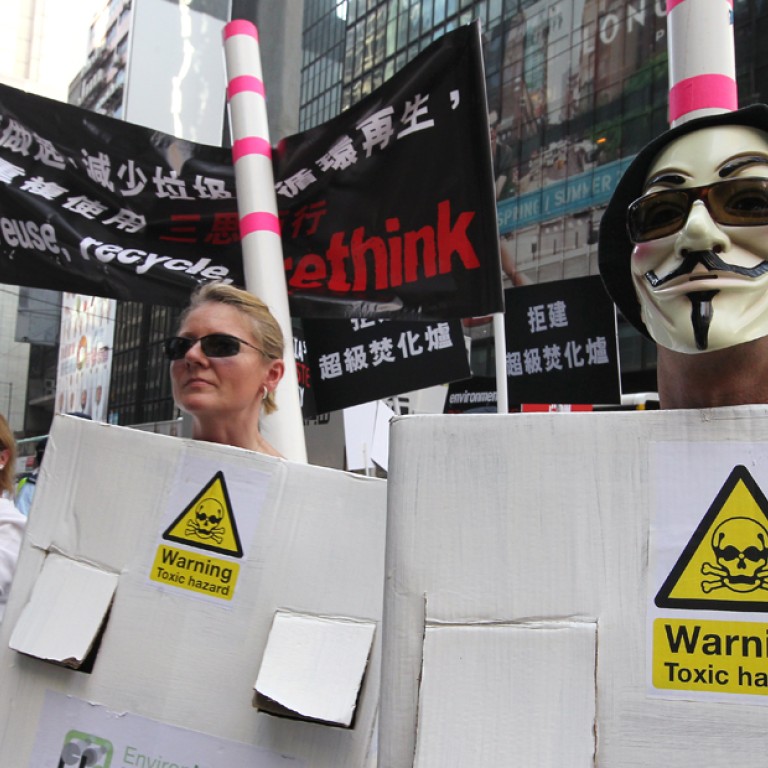
Incinerator not the answer to Hong Kong's waste problem
I refer to the letter by Elvis W. K. Au, of the Environmental Protection Department ("Allaying fears over health risks posed by planned incinerator", December 16).
He fails to mention that the prevailing wind direction, especially in the summer months, means that the dangerous emissions from the planned incinerator on Shek Kwu Chau will affect not only local residents, but residents in many other parts of the SAR.
The whole point about the PM2.5 particles is that they are so small that they can be carried many miles away from the original source.
He also talks about filters in the flue gas being able to remove over 99 per cent of the PM2.5 particles. This still leaves around 1 per cent of a huge tonnage of waste going up the chimney and being dispersed by the wind every day.
Also, Mr Au fails to mention the dangerous persistent organic pollutants, such as dioxins, that will be emitted by the incineration process every day. If even one life is affected by these emissions, can Mr Au truly say that the risk is worth the investment?
Shamefully, the letter avoids the real issue, which is the failure to implement proper waste management processes for Hong Kong.
If the department could get its act together and develop proper management of our waste, the amount of recoverable and recyclable waste available for separation could reduce the total amount of waste by around 85 per cent.
This would mean that the amount of waste for ultimate disposal would not then be sufficient to justify the huge HK$15 billion cost of building the giant incinerator in the first place. It simply wouldn't be needed.
It seems that the department's officials prefer to throw our money at the problem rather than use their imagination to reduce the scale of the waste problem.
In his final comment, Mr Au states that the department will set up transparent monitoring systems to inform the public of emissions from the system.
Will he confirm that the monitoring and reporting will be on a continuous basis, conducted and reported by an independent third party, or will it be selective on days when the department controls the emissions so only the good results are reported?
Either way, it rather sounds a bit like locking the stable door after the horse has bolted.

